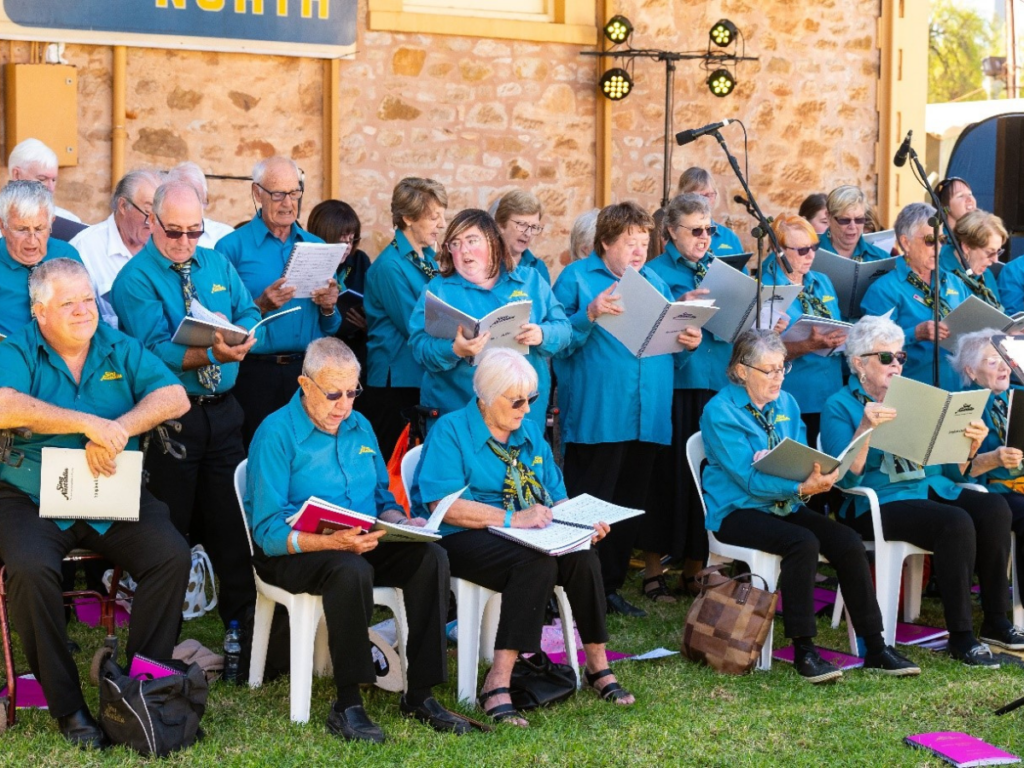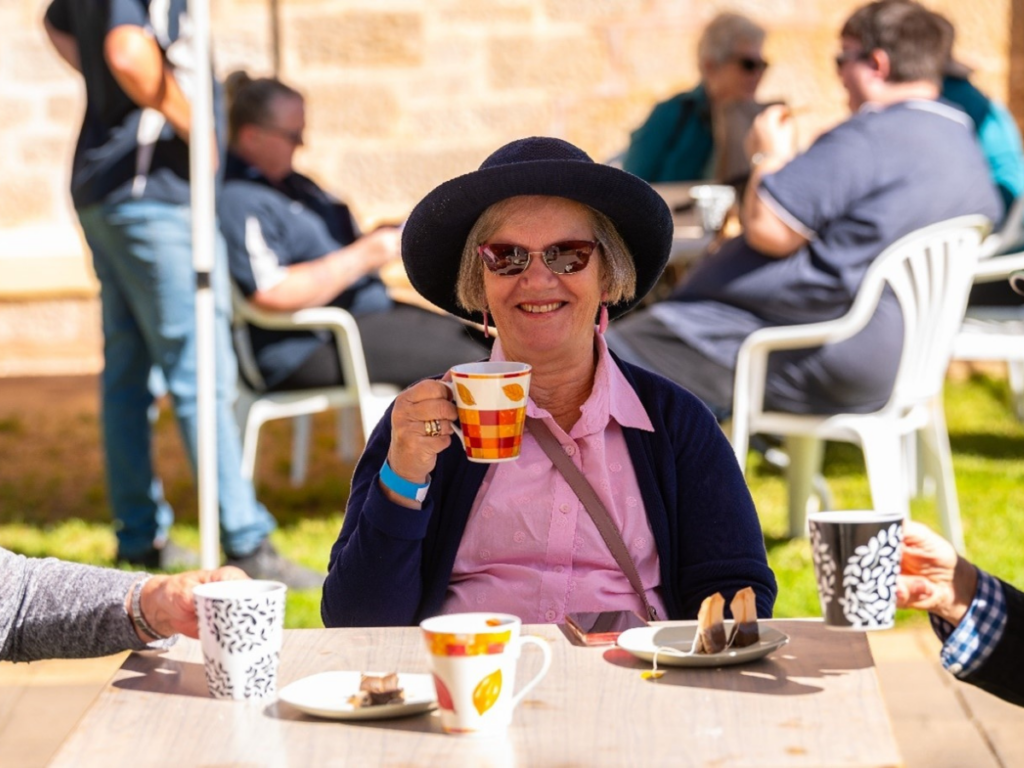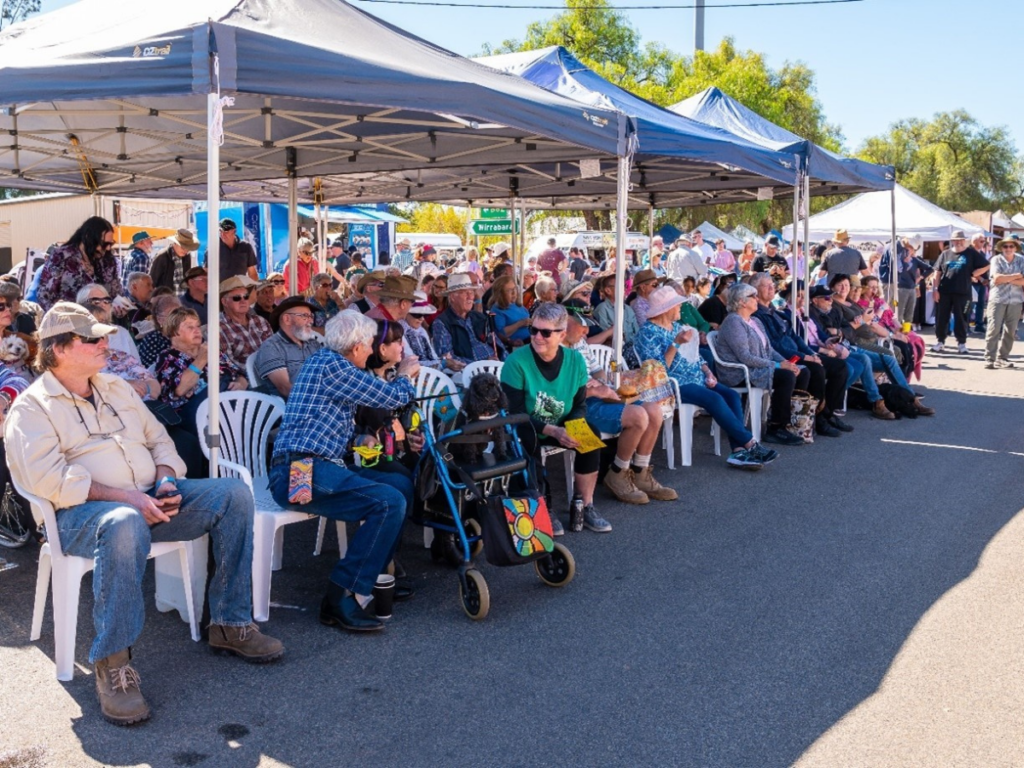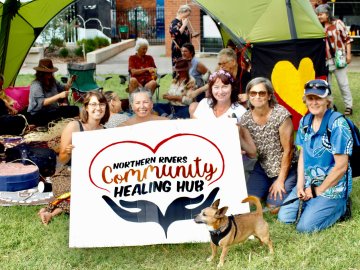Foundation for Rural & Regional Renewal (FRRR)
Nestled beside the Rocky River and amid the undulating hills of the Southern Flinders Ranges in South Australia, Laura is a lively, artistic rural community with around 720 residents. The Laura Fair, inaugurated in 1980 to foster art and culture in the region, has been held without interruption until the COVID years.
The Fair is a major highlight for the region and normally taking place over two days at the beginning of April, typically attracting 10,000 to 15,000 patrons. The event is entirely driven by a small volunteer committee and a large contingent of casual volunteers who assist with various aspects of the event.
The event significantly benefits local businesses economically and serves as a primary fundraising platform for numerous local community groups. This family-oriented fair offers a delightful rural experience with great food and coffee, artisan market stalls, entertainment and more throughout the weekend.
To decrease the event costs of hiring equipment, including chairs, the fair committee was supported through a $4,590 Rebuilding Regional Communities grant to buy 200 stackable outdoor chairs for use at the fair and other community events, beginning with the 2024 Fair, which aimed to foster community connections post-pandemic and reinvigorate the event.
The Fair took place 13-14 April and attendees enjoyed a Street Parade, vintage cars, SES, CFS and local business floats and live entertainment, as well as roving performers and buskers, Sideshow Alley, food stalls, an Art Gallery exhibition and more than100 market stalls.



Events such as the Laura Fair are allowing regional, rural, and remote communities to heal and reconnect after the uncertainty and disconnection caused by COVID impacts and are vital to the social and mental recovery of residents.
The chairs purchased with the funds provided by the RRC program will mainly serve the Laura Fair during their yearly event, eliminating the recurring cost of renting them, as the group estimates the money they have spent over the years would have paid for chairs several times over.
The group has storage space in an existing facility to keep and maintain the seats in good condition. With COVID affecting revenue, this cost-saving measure will allow the group to allocate more funds towards running costs or supporting other local community groups. Additionally, these chairs will be available to other community organisations in the Laura area to eliminate the need for them to pay equipment hire.
Yarning and other culturally-informed models of health can support people in the community to explore factors that impinge on social-emotional wellbeing (SEWB) and co-create solutions for individual and family wellbeing, including young people.
(Murrup-Stewart et al, 2021)
The Northern River Community Healing Hub is a network of local Indigenous and non-Indigenous volunteers who practice a range of culturally informed trauma-integrated healing modalities including weaving circles, art therapy and bodywork (massage). The hub was established following the catastrophic 2022 flood event in the Northern Rivers.

They received a grant for $24,570 through the Rebuilding Futures program, funded by the Suncorp Group to support the hub practitioners to grow and develop their work through increased service delivery moving from an entirely volunteer model to a hybrid paid / volunteer operation. NRCHH is available to all people, regardless of cultural background with a focus on their target population: Aboriginal and Torres Strait Islander people, children and young people, families, including older people. The project also included Mobile Hub operations to enable better access to the service within communities themselves – where they need them most, and in consultation with community.
The healing practice activity funded by the project has directly benefitted 639 people across the community at outreach to the pod villages of Coraki and Lismore, and tents at the Nimbin Aquarius Festival and Murwillumbah Kinship Festival, and workshops for a Queer Flood Recovery Event and an event for school children. In addition there have been weekly sessions at the Healing Hub including: 15 bodywork sessions per week free to the community; free flowing drop in weaving / yarning circle on Wednesdays; and clay art therapy once a week.
The NRCHH has evolved through the project. The paid / volunteer mixed model has been successful and they are now seeking input and collaboration that will deepen partnerships and relationships with the organisations that they currently work with to continue.
Project Manager Ruth Rosenhek said, “At the Healing Hub, we provide a de-clinicalised, informal soft-texture gentle space to support healing for our community that focuses on the whole person including a phenomenally successful bodywork program that runs alongside cultural activities such as weaving and yarning circles, creative arts and community connection. We have found that 18 months past the 2022 flood events, people continue to be managing high levels of stress and trauma. These cultural activities that involve sitting on country, slowing down the pace, connection and belonging are all powerful healing agents.”

